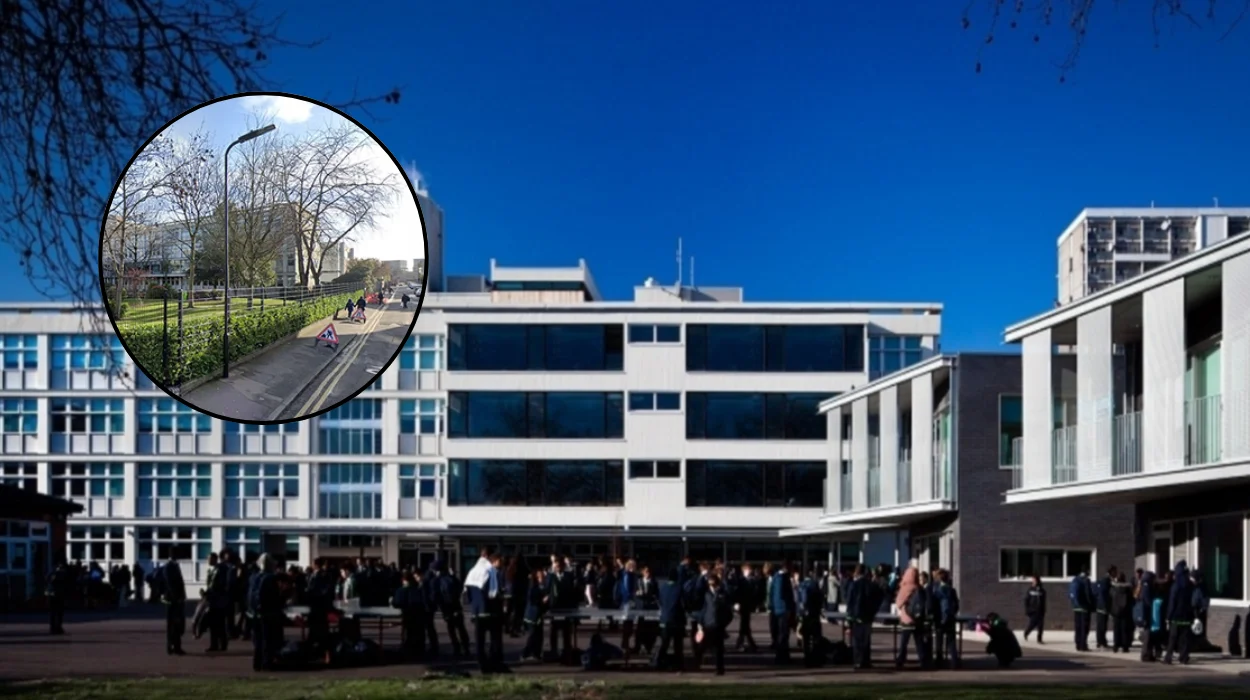Key Points
- Parents and teachers allege that Haggerston School, part of the Community Schools Trust (CST), implemented excessively strict discipline policies since transferring to academy status in September 2023.
- The school’s strict detentions and behaviour management have reportedly caused deterioration in students’ mental health and high staff turnover.
- Internal data reveals high suspension rates, frequent internal suspensions, and over 29,000 corrections for minor infractions between September 2024 and February 2025.
- There are concerns over the use of the SLANT behaviour policy, introduced in 2010 by Doug Lemov, and its misapplication since 2021.
- Allegations include students being denied toilet breaks, leading to humiliating incidents, and staff members referencing Chinese discipline as a model—raising ethical questions.
- CEO Simon Elliott from CST defends the high standards and academic success among disadvantaged students, asserting that strict policies are necessary.
- Critics argue that the disciplinary methods are demoralising and lead to vulnerable children feeling unsupported, with some parents planning to avoid the school.
- The controversy has drawn wider attention to the use of zero-tolerance discipline policies in UK academies, amid calls for review and scrutiny.
What Are the Allegations Against Haggerston School Regarding Discipline and Student Well-being?
As reported by The Times Radio investigation (author unknown), parents and former staff at Haggerston School in Hackney have raised serious concerns about the school’s disciplinary practices since its conversion to academy status under the Community Schools Trust (CST) in September 2023. The allegations focus on overly strict rule enforcement, high detention rates, and involvement in austerity-driven management strategies that, critics claim, harm students’ mental health and overall school climate.
- Key Points
- What Are the Allegations Against Haggerston School Regarding Discipline and Student Well-being?
- How Have Discipline Policies Impacted Student Mental Health and Staff Turnover?
- What Role Do the School’s Leadership and External Influences Play?
- Is There Evidence That Excessive Discipline Is Affecting Student Well-being?
- Has External Oversight or Investigation Been Initiated?
- What Is the Future Outlook for the School and Its Policies?
Parents have expressed their discontent, emphasising that the policies have made children feel “demoralised” and have failed to improve behaviour, contrary to official promises of a nurturing educational environment. The Times Radio investigation reveals that since last September, internal data indicates the school has handed out nearly 30,000 corrections—primarily detention notices—for minor infractions, such as incorrect lining up, late or incomplete homework, and non-compliance with core behavioural expectations like the SLANT method.
Teachers interviewed by Times Radio described a deteriorating atmosphere, with students experiencing discomfort over restrictions like not being allowed to use toilets during lessons—some are reported to have wet themselves as a result. Furthermore, the investigation uncovered a troubling email from the school’s leadership citing Chinese discipline techniques, including sharing a video of Chinese students performing synchronised exercises—an act raising ethical questions given the high academic pressures and associated mental health issues in Chinese student populations.
How Have Discipline Policies Impacted Student Mental Health and Staff Turnover?
In stark detail, the internal data shared by Times Radio shows that during the four months from September 2024 to February 2025, more than two students faced permanent exclusion, and over 122 students were suspended. Nearly 900 students accumulated internal suspensions, spending hours in exclusion rooms, signalling an increasingly punitive environment. The data further reveals that the majority of corrections and suspensions involved vulnerable groups, notably children with Special Education Needs (SEN), who accounted for 10% of all corrections and exclusions despite representing only 5% of the student body last year.
A former teacher contacted the investigation to complain that the relentless discipline has led to an exodus of staff, citing heavy workloads and the emotional strain associated with managing behaviours under these policies. The report notes that teachers have observed students in visible distress, with some students suffering from humiliation and neglecting essentials such as toilet breaks, which has led to incidents of wetting themselves—further exacerbating the perceived severity of the disciplinary regime.
What Role Do the School’s Leadership and External Influences Play?
A key aspect of the controversy stems from an internal email circulated among staff, which referenced a video of disciplined Chinese students as an exemplary model, accompanied by remarks praising the high standards of discipline. As highlighted by The Guardian (author unknown), a teacher expressed that this approach overlooks the high rates of mental health issues, including rising teenage suicides linked to academic pressure in China.
In response, Simon Elliott, CEO of the Community Schools Trust, justified the strict policies, asserting that the school demands “extremely high standards” and emphasising that their objective is good academic results for disadvantaged children. According to Elliott, the trust’s schools deliver some of the best GCSE results for minority and low-income students in the country and that these standards are vital for improving life prospects for vulnerable pupils.
Elliott reaffirmed that “the majority of students under the CST care are from poor backgrounds” and that their high expectations are designed to support students’ future success. He stated these policies are in place to help them realise their potential, citing the link between GCSE grades and better future life outcomes.
Is There Evidence That Excessive Discipline Is Affecting Student Well-being?
Concerns over student well-being are at the forefront of recent criticism. Multiple reports indicate that children are subjected to frequent detention, sometimes for minor breaches, with some teachers noting that students with SEN or those from deprived backgrounds suffer disproportionately.
One parent, speaking anonymously to The Citizen during an open evening, expressed regret over her decision to consider enrolling her child at Haggerston. She stated that current discipline policies are not only inconsistent with the school’s promotional claims of being non-“draconian” but are also damaging the formative years of children. She added that “children are vulnerable, these are formative years for them and they need to be nurtured,” warning that the borough’s primary schools are struggling, which might inevitably lead to further secondary school closures unless drastic improvements occur.
Health professionals and child psychologists have warned that aggressive discipline can increase anxiety, depression, and feelings of alienation among students, risking long-term mental health repercussions. The high suspension and exclusion rates, especially among vulnerable students, have led some to question the effectiveness and ethics of zero-tolerance policies.
Has External Oversight or Investigation Been Initiated?
Following community concerns, Hackney’s independent child safeguarding body, Jim Gamble, launched a child safeguarding practice review into Mossbourne Victoria Park Academy (MVPA) after over 200 parents and professionals raised concerns, according to Hackney Gazette (author unknown). The investigation aimed to scrutinise disciplinary and safeguarding practices at multiple schools within the Trust, though its full findings have yet to be published.
Critics argue that these issues warrant broader review of discipline policies across UK academies, especially those employing zero-tolerance strategies, to ensure that children’s mental health and developmental needs are not secondary to strict behavioural enforcement.
What Is the Future Outlook for the School and Its Policies?
While CST officials defend their approach, claiming high academic achievement and discipline standards, critics demand more balanced policies that uphold children’s rights and mental health. The controversy at Haggerston School has ignited debates about the legitimacy and consequences of extreme discipline models, with calls for independent investigations into school practices.



